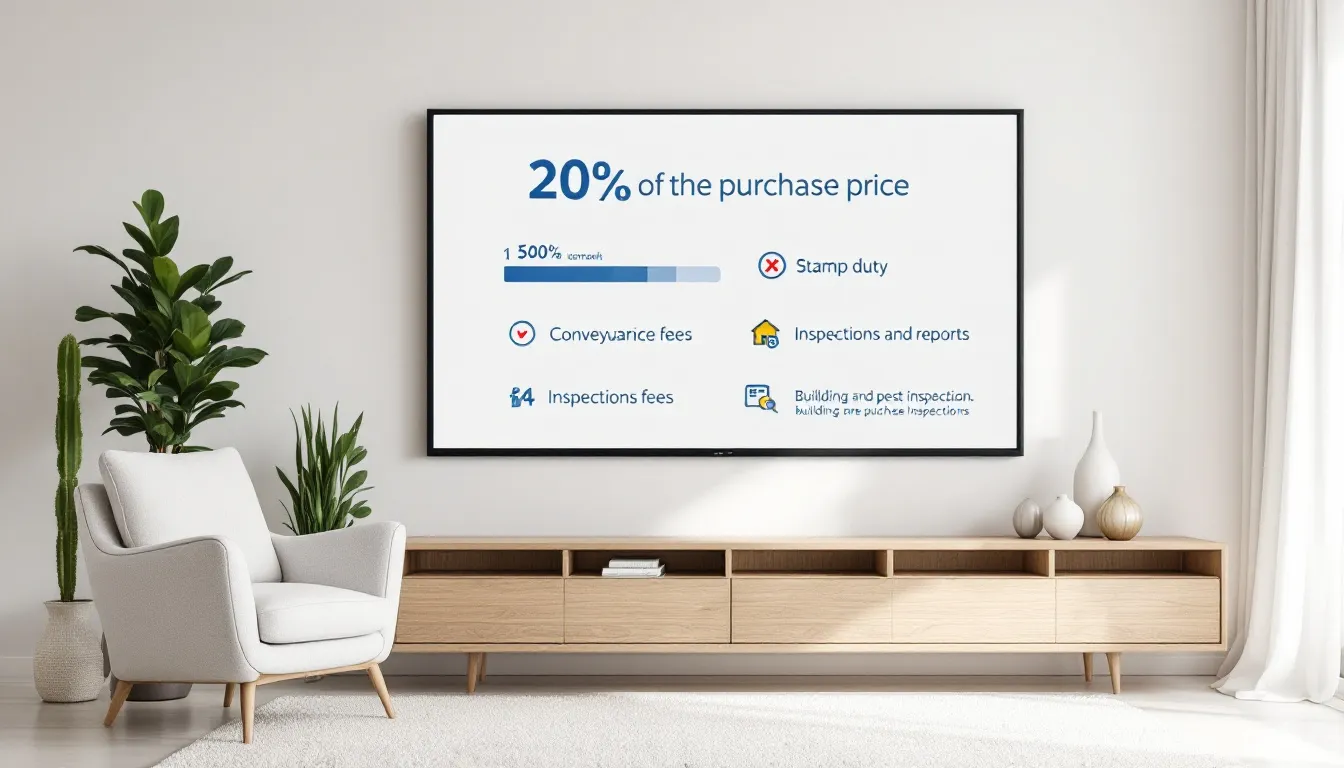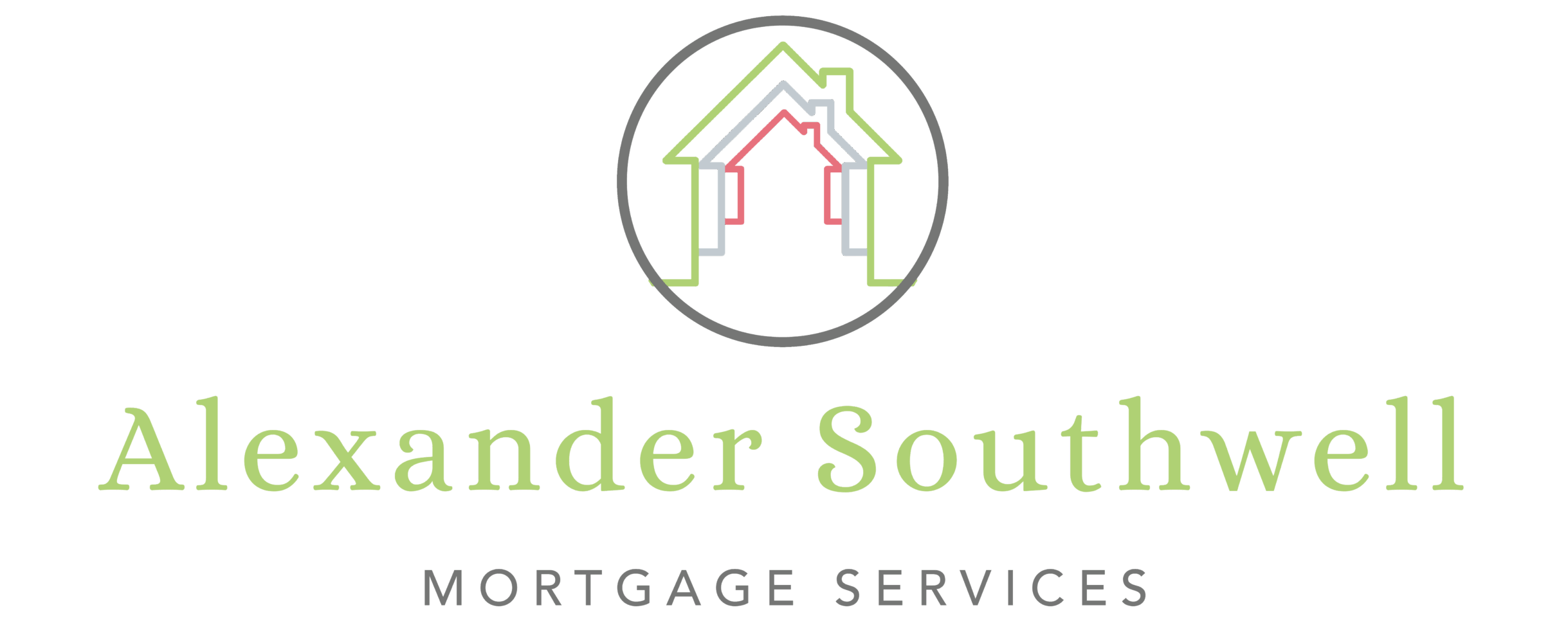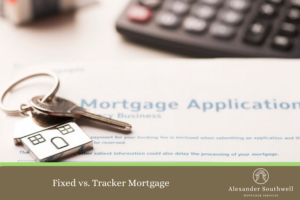Moving Home Mortgages
Moving home mortgages can seem complicated, but we’re here to help you navigate the process. If you already have a mortgage and plan to move, you’ll need to know your options before house hunting, such as porting your current mortgage or applying for a new one. This guide will explain these choices, the steps involved, and essential tips to make your move smoother.
Key Takeaways
- Home mover mortgages are tailored loans for individuals relocating with a current mortgage, offering flexibility and better deals.
- Understanding your borrowing potential, including factors like credit history and debt-to-income ratio, is essential for securing a suitable mortgage.
Effective planning, including budgeting for moving costs and understanding mortgage options, can streamline the home moving process and prevent costly mistakes and potentially avoid higher monthly payments.
Understanding Home Mover Mortgages
Specialised home mover mortgages cater to individuals who wish to transfer from one property to another while already holding an current mortgage.
These financial solutions are designed with the intent of offering more advantageous terms, ensuring they align well with both the requirements of the new residence and those of the borrower.
Such mortgages stand out for their adaptability. For instance, incorporating a second individual into your mortgage can substantially expand your borrowing capacity, thereby assisting you in upgrading to a more sizeable or costly dwelling.
You’re not obligated to stick with your current mortgage. There are a range of options at hand.
One alternative includes transferring or “porting” your present mortgage over onto the new home, which is worth consideration.
How Much Can You Borrow?
Calculating the amount you might be able to borrow is an essential step in acquiring a mortgage. A mortgage calculator serves as a helpful instrument that can estimate your borrowing capacity based on factors such as earnings, outgoings, and any existing financial obligations.
It provides an initial understanding of how much mortgage money you may be eligible for, assisting in aligning your expectations with reality during your property hunt.
When determining how much they will lend to you, creditors consider various elements including credit score consistency of income and current debts.
Each creditor has unique criteria relating to affordability which play a significant role in shaping the potential loan amount offered. As such, grasping these lender-specific standards and confirming that your fiscal situation fits within them is critical.
The debt-to-income ratio stands out among several determinants impacting your eligibility for borrowed funds.
This measure is central to ensuring manageable repayments on a future home loan. By comprehending and influencing these variables appropriately, one can enhance their chances of securing favourable terms of borrowing thereby finding feasible mortgage affordability options suitable for their needs.
Use our calculator now to find out how much you could borrow.
Deposit Requirements for Moving Home
When obtaining a home mover mortgage, the smallest deposit usually required is 5%. This allows you to obtain a mortgage for 95% of your new property’s valuation or purchase price, necessitating only that minimal 5% deposit.
It’s widely recognized among most buyers that opting for more substantial deposits can be beneficial by showcasing fiscal responsibility and possibly leading to reduced interest rates.
On occasion, depending on the nature of the property involved, which may carry greater risks, lenders might insist on a higher initial investment.
These mortgages stipulate that properties should have at least a valuation or purchase price starting from £40,000.
This threshold could be subject to fluctuations in current house prices. Being prepared for such conditions will assist in smoothly progressing through buying your home and achieving an advantageous mortgage arrangement.
If you use Alexander Southwell, we will dedicate a mortgage adviser to help you move up the property ladder. All of the above will be explained to you but based on your personal circumstances.
Porting Your Existing Mortgage
Transferring your existing mortgage to another property, known as porting, can be advantageous as it allows you to maintain the terms of your current mortgage and circumvent early repayment charges. This process typically necessitates undergoing a new application procedure that includes evaluating your creditworthiness and financial income.
While there are benefits like evading early repayment fees associated with porting, it also presents certain obstacles.
The option to port is not available for all mortgages, and should there be a decline in your financial status since obtaining the initial mortgage, you might face rejection on the application for portability. Lenders may require adherence to different terms or stipulations. Grasping these subtleties assists in determining whether mortgage portability aligns with your needs.
Early Repayment Charges
Early repayment charges (ERCs) are levied by lenders when you settle your mortgage, either partially or in full, prior to the completion of its agreed duration.
Typically triggered if you make an overpayment or clear the mortgage ahead of the end of a specified tie-in period, these fees can represent 1% to 5% of what’s left on your mortgage balance and often decrease as time passes.
You can sidestep ERCs by either waiting for your current mortgage deal to come to an end or considering transferring your existing mortgage over to another property a process referred to as porting. It’s worth noting that certain mortgages specifically tracker or standard variable rate types usually don’t impose ERCs, thereby providing additional leeway for those who may wish to pay off their loan earlier than anticipated.
Costs Involved in Moving Home
When moving home, there are several costs you need to be aware of, including:
- Legal work or Conveyancing fees, which generally range from £850 to £1,500, depending on the property’s value and complexity
- Valuation fees, which can vary from £150 to £1,500, influenced by the property’s size and location
- Land Registry fees
- Stamp Duty Land Tax – This is a buildings transaction tax, use our calculator to find out what you would pay
In addition to these costs, you’ll need to budget for Land Registry fees, which typically range between £20 and £910, depending on the property price. Unexpected expenses, such as repairs, moving services, and temporary accommodation, can also add up.
Budgeting for these moving expenses helps manage costs effectively throughout the process. Work out the costs with out moving calculator below.
Choosing Between Fixed Rate and Variable Rate Mortgages
For home movers, determining the better option between fixed-rate and variable-rate mortgages is essential.
Fixed-rate mortgages provide a constant interest rate throughout the loan’s duration, shielding homeowners from any fluctuations in interest rates. This consistent approach can be advantageous during periods where mortgage rates are on an upward trajectory.
Conversely, variable-rate mortgages usually offer a more appealing lower initial interest rate compared to their fixed-rate counterparts, which could result in early cost savings.
These mortgage rates have the potential to rise with shifts in market trends. Mortgage tracker rate tend to be the most favourable variable rate mortgage.
Deciding on which type of mortgage suits you best often hinges on how long you intend to stay in your property and your financial resilience. It’s important to weigh your appetite for risk against your future objectives when making this choice.
The Role of Mortgage Brokers
Our mortgage brokers are instrumental for home movers attempting to make sense of the intricate world of mortgages.
They grant access to an extensive selection of mortgage opportunities that might not be widely advertised, potentially offering more advantageous deals.
By being in tune with market tendencies and understanding what lenders look for, mortgage brokers can offer specialised advice and design customised mortgage strategies.
Employing a mortgage broker can alleviate the burden by managing complicated documentation and leading negotiations on your behalf.
Brokers play a key role in preventing expensive mistakes by ensuring your mortgage application aligns with lender criteria. For Support, a mortgage and protection adviser is equipped to guide you through various financial options.
Utilising the services of a mortgage broker often results in financial gains such as obtaining lower interest rates or decreasing fees over an extended period, which could lead to significant savings.
The first thing our brokers will do is to check your current mortgage to see whether it is an interest only mortgage, repayment mortgage, whether it has negative equity or lots of equity to use. Set up a mortgage appointment today to start the process.
Check your credit score today!
Each credit reference agency calculates your credit rating slightly differently and has a different scoring system. Which means that what counts as a good credit score will depend on which of the four major agencies your lender uses.
Experian, Equifax, Crediva and TransUnion, each credit agency could have different information showing, therefore, we have teamed up with Check My File. Their services provide not only a free 30-day trial but also a comprehensive credit report from all four agencies. This ensures our mortgage advisors can easily identify any credit rating issues.
To obtain your report, click the link below for a 30-day free trial with CheckMyFile. After the trial, a monthly subscription fee of £14.99 will apply, with the flexibility to cancel anytime.
Provide us with a credit report today, and uncover the issues that could be affecting your credit file! CLICK HERE to access your free credit report with the four top credit agencies all in one report!
Essential Insurance for Home Movers
Securing insurance is a vital step in the process of relocating to a new residence. It’s imperative to have buildings insurance, which offers protection for your home’s physical structure against potential hazards such as fire or water damage.
Equally important is contents insurance, which shields your personal items from theft and destruction.
Critical illness insurance policies serve an essential role by providing financial aid during times when you’re incapacitated due to severe health issues.
Such coverage guarantees that mortgage payments are maintained through Scottish widows protection products backed by Lloyds Banking Group.
By establishing suitable home insurance coverages, you safeguard both your property and fiscal obligations while also maintaining effective control over your own finances.
Tips for Speeding Up the Mortgage Process
To expedite the mortgage process, thus saving time and lessening stress, it’s crucial to address queries from conveyancers swiftly and complete property information forms both precisely and without delay.
An orderly collection of all necessary documents ensures that you can respond promptly throughout the conveyancing journey.
Leveraging digital conveyancing platforms enhances interaction while minimising dependence on tangible documents, consequently speeding proceedings.
Scheduling a property assessment in advance can uncover issues that may otherwise slow down the process if discovered later on. Maintaining consistent dialogue with your estate agents can be instrumental in foreseeing and rectifying possible hold-ups.
Legal Requirements and Conveyancing
The execution of legal tasks is an essential component in the completion of a mortgage, as it ensures compliance with all necessary legal commitments throughout the property acquisition journey.
The selection of an adept solicitor has significant implications for the promptness and smoothness of the home-buying legal proceedings.
Since legal fees are subject to change based on how complex your real estate deal is and on the level of expertise offered by your lawyer, securing a guarantee for these costs can offer reassurance.
Various elements affect how long it takes to navigate through the legal stages involved in buying a house, such as how quickly solicitors communicate and unforeseen issues within property chains. Prompt involvement with a conveyancer upon making your decision to purchase can jump-start critical procedures ahead of time, which helps shave off precious delays.
Ensuring that you have sorted out all necessary insurances before exchanging contracts can help avoid any last-ditch stalling in proceeding with your transaction.
What Happens After Your Mortgage Deal Ends?
Upon the completion of your fixed-rate mortgage term, you can expect that your loan will automatically switch to your lender’s standard variable rate (SVR).
Remaining on this SVR after the expiration of your fixed-rate period results in paying elevated interest rates.
To avoid extra expenses, it is wise to initiate preparations for remortgaging about six months prior to the expiry of your existing mortgage deal.
This is crucial as alterations in income or an accumulation of debt could profoundly affect your eligibility for a new mortgage agreement.
Be aware that if you opt to remortgage following the end of your fixed-rate contract, early repayment fees might still be applicable.
Letting Your Property
Should you be thinking about renting out your property, it’s essential to comprehend the obligations and possible repercussions involved. Initially, securing authorisation from your mortgage provider is mandatory before proceeding with letting your property.
This involves filling out necessary paperwork and presenting it to your lending institution.
Keep in mind that there could be extra fees attached to your current mortgage rate upon beginning the rental process. Occasionally, switching to a different mortgage product designed for letting properties might become necessary. Being aware of these measures ensures you are well-informed and can steer clear of likely difficulties.
Planning Your Move
Efficient organisation can greatly enhance your experience when relocating homes.
Opt for a move completion date that is strategically chosen to avoid busy seasons and aligns with your personal calendar, steering clear of the busiest times. It’s crucial to invest time in vetting various moving services through thorough research and comparisons so you can select one that’s dependable.
Tackling clutter prior to boxing up will significantly cut down on the volume of items needing transport, which not only eases the physical move but also decreases transportation expenses.
By clearly labeling each box with its contents and designated room at your new residence, you streamline the unpacking process and expedite settling in.
Maintaining open lines of communication with your home movers on relocation day is essential to prevent any confusion or errors during the operation.
With advance preparation and meticulous orderliness throughout this transition, it becomes possible for those moving homes, like yourself, to eliminate unnecessary stressors. This approach enables you fully enjoy stepping into life at your new abode with your new mortgage without undue pressure from logistical concerns around moving day procedures.
Your Mortgage And Protection Advisers
Our aim at Alexander Southwell is to make the house buying process as efficient as possible. It isn’t just about your new mortgage deal, we assess your whole cost of moving, work out how much you could borrow, provide you with your new monthly repayments and assess your financial commitments. When you get a mortgage with us we work with you throughout the legal process. Get in touch with us for a phone call or video call today. Let us know how we can help . . .
Summary
Navigating the world of home mover mortgages can seem daunting, but with the right knowledge and preparation, it becomes a manageable and even exciting journey.
From understanding the basics of home mover mortgages and how much you can borrow, to deposit requirements and porting your existing mortgage, each step is crucial in ensuring a smooth transition.
In addition to financial considerations, understanding the costs involved, choosing the right mortgage type, and the role of mortgage brokers can greatly impact your home moving process.
Essential insurance, tips for speeding up the mortgage process, and legal requirements are all critical aspects to consider. Whether you’re letting your property or planning your move, being well-informed and prepared will help you navigate the complexities of moving home with confidence and ease.
Frequently Asked Questions
What is a home mover mortgage?
A mortgage for home movers is intended for those who already have a mortgage and wish to buy a new property. It offers customised terms which could result in better rates on the mortgage for your new residence.
How much deposit is required for a home mover mortgage?
A minimum deposit of 5% is usually required for a home mover mortgage, but a larger deposit can lead to better interest rates.
What does porting a mortgage mean?
Porting a mortgage means transferring your existing mortgage to a new property while retaining the original terms, which can help you avoid early repayment charges.
This option can be beneficial when moving to a new home.
What are early repayment charges?
Early Repayment Charges (ERCs) are penalties that lenders impose when you pay off your mortgage early, either in full or in part.
These charges usually range from 1% to 5% of the remaining balance and decrease over time.
Why is home insurance & mortgage protection important for home movers?
Insurance is essential for home movers as it protects both your property and your financial investment. By securing buildings and contents insurance, you safeguard your new home and belongings against unforeseen events.









